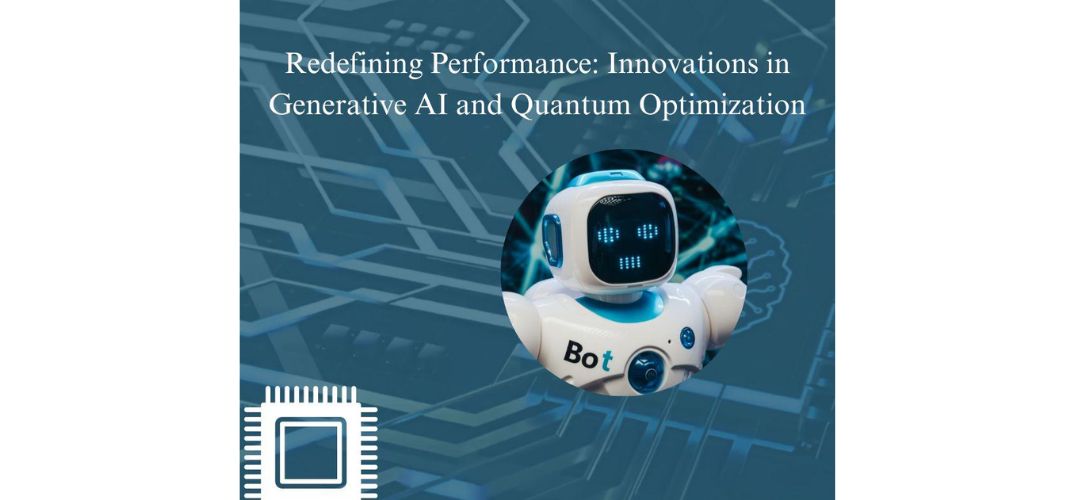The evolving landscape of performance optimization is being revolutionized by groundbreaking strides in generative AI and quantum computing. Sai Ram Chappidi, an expert in technological systems, explores how these transformative technologies promise to redefine operational efficiency across industries.
Bridging Manual and Automated Optimization
The transition from traditional manual optimization methods to AI-driven techniques marks a transformative shift in performance management. Historically reliant on extensive human oversight to navigate complex processes, optimization now thrives on AI’s capacity to analyze and process over 1,500 parameters simultaneously and in real-time. This evolution has drastically reduced errors, improved decision-making accuracy, and elevated scalability and efficiency to unprecedented levels.
AI’s ability to handle intricate interdependencies and adapt dynamically to changes enables organizations to achieve robust, data-driven solutions that were previously unattainable. This shift underscores the growing dependence on intelligent automation to tackle the complexities of modern systems management. By integrating AI, industries can unlock significant operational improvements, enhance productivity, and address evolving challenges with agility. The adoption of AI-driven optimization is paving the way for a more adaptive, efficient, and innovation-driven future.
Generative AI: An Architect of Efficiency
Generative AI has emerged as a cornerstone in performance optimization, transforming how systems manage scalability and functionality. Recent research highlights AI’s success in reducing code complexity by 47% while improving performance by 72%. By automating hyperparameter tuning, AI not only shortens development cycles by 38% but also enhances system reliability. This adaptability has positioned AI as a pivotal tool for organizations aiming to modernize and streamline operations.
In advanced applications, AI-driven pattern recognition has reduced regression bugs by 89%, cutting performance bottleneck resolution times from hours to minutes. With such capabilities, generative AI exemplifies the transformative potential of technology in achieving operational excellence.
Quantum Computing: The Next Frontier
Quantum computing is transforming optimization by leveraging its immense computational power to solve complex problems with unprecedented speed and efficiency. Quantum-inspired algorithms enable organizations to explore solution spaces up to 1,000 times faster than conventional methods, significantly improving decision-making processes. These systems optimize energy efficiency by 67% while maintaining near-perfect accuracy, making them invaluable for intricate applications like financial modeling and cryptography. Additionally, quantum technologies reduce resource requirements by 73%, offering a sustainable and cost-effective alternative to traditional methods.
The integration of quantum systems with classical architectures unlocks enhanced problem-solving capabilities, bridging the gap between today’s computational limits and tomorrow’s possibilities. By accelerating innovation in diverse fields, quantum computing promises to address challenges previously deemed unsolvable, paving the way for breakthroughs in science, industry, and technology while setting new standards in efficiency and sustainability.
Ethical Dimensions of AI Optimization
The emergence of AI-driven optimization has sparked critical ethical considerations, particularly around transparency and accountability in decision-making. Structured governance frameworks have proven instrumental, reducing adverse outcomes by 76% and ensuring AI systems operate within ethical boundaries. Hybrid oversight models, which combine human judgment with AI capabilities, have been especially effective in mitigating algorithmic biases and enhancing trust. Transparency initiatives, such as explainable AI and stakeholder engagement, have increased trust by 89%, demonstrating the importance of ethical practices in fostering confidence in AI technologies. These measures not only address potential biases but also ensure that AI systems align with organizational values and societal expectations. As organizations increasingly adopt AI-driven systems, achieving a balance between efficiency and accountability will be pivotal for sustainable success, making ethics and governance core components of technological advancement.
Future Horizons
Adaptive learning systems and quantum enhancements herald a future where optimization transcends traditional boundaries. With advancements in self-optimizing algorithms and hybrid systems, organizations are poised to tackle complex challenges with unprecedented precision. These innovations promise to redefine efficiency and scalability, setting a new benchmark for performance optimization.
As Sai Ram Chappidi articulates, the integration of generative AI, quantum computing, and ethical frameworks represents a pivotal moment in technological evolution. By harmonizing automation with responsible governance, industries can unlock the full potential of these advancements, ensuring both innovation and accountability.



































